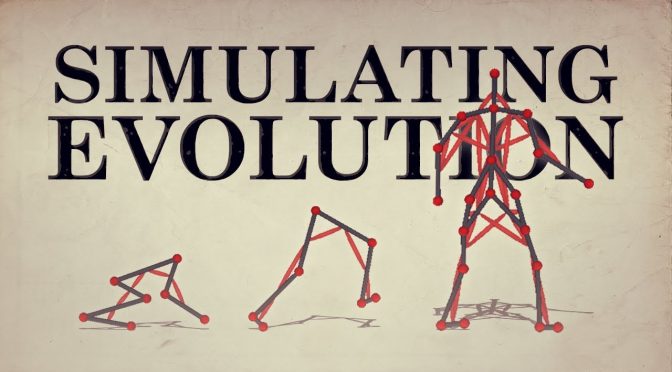The Curious Archive YouTube channel delves into the fascinating world of evolution simulations through video games and scientific research. From the simple cellular automata of Conway’s Game of Life to the detailed and intricate worlds of modern-day games and experiments, these simulations offer a unique perspective on how life evolves and adapts over time.
Cellular automata and Conway’s Game of Life
Cellular automata and Conway’s Game of Life highlight the profound philosophical concept of emergence, wherein complex patterns and behaviors arise from simple rules and interactions. These basic building blocks give rise to intricate, dynamic systems that evoke a sense of wonder and awe. The phenomenon of emergence challenges our understanding of the nature of reality and the boundaries between the simple and the complex, prompting us to question the foundations of life and the universe.
The Game of Life also serves as a metaphor for the interconnectedness of all things. Each cell in the grid is influenced by its neighbors, and their collective interactions dictate the evolution of the entire system. This mirrors the intricate web of relationships and dependencies present within ecosystems, societies, and even our own consciousness. In this way, cellular automata force us to confront the idea that individual components cannot be understood in isolation, but rather as part of a greater, interconnected whole.
Furthermore, cellular automata and the Game of Life invite us to ponder the nature of intelligence and the potential for artificial life. If complex systems can arise from such simple rules, might it be possible that intelligent beings, or even consciousness itself, could emerge from a sufficiently advanced set of interactions and algorithms? This tantalizing question not only challenges our understanding of what it means to be alive and sentient but also pushes the boundaries of artificial intelligence, raising ethical and existential questions about the future of our own species and the potential for creating new forms of life.
The Origins: Cellular Automata and Conway’s Game of Life
John Horton Conway’s Game of Life introduced the concept of cellular automata, which are simple models of computation that can mimic biological processes. The Game of Life and other cellular automata demonstrate the complexity that can arise from a few basic rules, much like the mechanisms within biological cells.
The Evolution of Evolution Simulations
Over time, video games and scientific experiments have evolved to create more complex and accurate simulations of life. Notable examples include the 3D simulations of bipedal creatures from 2013, AI learning locomotion techniques, and the ICLR conference presentations on teaching models to walk. These simulations, while not games in the traditional sense, provide valuable insights into the mechanics of life and evolution.
Dreaming Big: Spore, Adapt, and Beyond
The dream of creating the ultimate evolution simulator has captured the imagination of both gamers and scientists. Games like Spore, Adapt, The Sapling, and Thrive attempt to push the boundaries of what is possible in simulating life and evolution, though some have fallen short of their lofty ambitions.
The Ethics of Simulating Life
As our simulations become increasingly accurate, we must also consider the ethical implications of simulating life. If we reach a point where virtual creatures are indistinguishable from biological life, will we need to reevaluate our responsibilities and actions within these simulations?
Conclusion: The Future of Evolution Simulations
The future of this subgenre is undoubtedly promising. With more games and experiments continuing to explore the complexities of evolution, the line between the virtual and the biological may become increasingly blurred. As we continue to unlock the secrets of life through these simulations, we may find ourselves writing a new chapter in the story of life itself.

